Review for Noragami - Complete Series Collection
Introduction
If there’s one thing that Japanese culture isn’t short of, it’s divinity. It’s a nation of gods, countless small gods, gods of places, gods of things, all with their own shrines and their own worshippers. There are also plenty of sprites, spirits, demons and ghosts to keep track of. This is a ripe source of material for fiction, and certainly manga and anime as well. One of my earliest anime DVD purchases were the Oh My Goddess OVAs, which borrowed from the Norse pantheon, but pretty soon I was introduced to all sorts of gods and goddesses as presented in the anime that I consumed. Just this year, I reviewed Kamisama Kiss from MVM, where an unsuspecting young girl meets an itinerant god, and winds up taking his place at a shrine, expected to bring back some worshippers. So my initial feelings were dismissive when I heard that Manga Entertainment had licensed Noragami, a show where an unsuspecting girl gets involved with an itinerant god... I should have read a little more deeply into the blurb, but it did interest me enough to take a look at the first two volumes of the manga in my local library a few months ago, at which point I began looking forward to the UK release of Noragami. Then I learned it was animated by Studio Bones, the people behind Darker than Black.
Yato is a stray god, a Noragami, who unlike his more well-off and well-known peers, lacks for followers, doesn’t get any offerings, and certainly doesn’t have a shrine to hang his hat, if he could afford a hat. But while he may look like a layabout who has lived in his tracksuit too long, he has big plans, even if he can’t hold onto his Regalia, spirits contracted to serve as his weapons. One day he will be worshipped and adored, and he’ll get it one 5 yen offering at a time, answering the wishes of the desperate that aren’t picky about which god answers their prayers.
It’s while he’s trying to find a little boy’s lost cat that he runs into high school girl Hiyori Iki. Actually it’s the other way around, as for some bizarre reason, Hiyori can see Yato when he doesn’t want to be seen. And it’s when he crosses the road after the cat, into the path of a bus, that Hiyori pushes him out of the way to save his life, and gets hit by the bus instead, her soul leaving her body. Fortunately, it’s not a permanent affair as she wakes up in hospital. But thereafter, her soul develops a habit of leaving her body at random, and Yato’s world of divine gods, wayward spirits and ominous phantoms becomes all too visible to her. That isn’t a good thing, and if there is one thing that Hiyori needs from Yato, it’s to make her soul permanently attached to her body once more. Getting the slacker god to answer that particular prayer proves difficult, while Yato’s life gets harder when he finds a new Regalia, a spirit named Yukine who has an odd view of right and wrong. And as Hiyori learns, the world of gods isn’t all that heavenly...
12 episodes of Noragami, plus extras are presented across 1 dual layer Blu-ray and one single layer Blu-ray from Manga Entertainment. Note that at this time, the UK and US get Noragami on Blu-ray, but Australia misses out, as they’re DVD only.
Disc 1
1. A Housecat, a Stray God, and a Tail
2. Snow-like
3. Bidden Calamity
4. Where Happiness Lies
5. Borderline
6. Scary Person
7. Uncertainty and Destiny
8. Over the Line
9. Name
Disc 2
10. Regarded With Hate
11. Abandoned God
12. A Scrap of a Memory
Picture
Noragami gets a 1.78:1 widescreen transfer at 1080p resolution on discs with authoring that appear to be sourced directly from Funimation. The image is clear and sharp throughout, the animation is smooth, and the usual anime blight of digital banding is really only restricted to scene fades. The line art, the detail in the backgrounds, and the character designs all warrant the HD presentation, while the colour palette, while subdued and mostly autumnal, still surpasses DVD quality. Noragami’s visual aesthetic has been compared to Darker than Black, and that is certainly warranted when it comes to the character designs and production values. It’s a well animated show, that is given due presentation on Blu-ray.
The images in this review are sourced from the PR, and aren’t necessarily representative of the final retail release.
Sound
You have the choice between Dolby TrueHD 5.1 Surround English, and 2.0 Stereo Japanese, as is the norm for Funimation Blu-rays. Also as is the norm, the volume levels are particularly low, easily remedied. I merely sampled the English dub to ensure that it exists (which it does), and what little I heard seemed agreeable enough. The Japanese audio was my preference, with the actors suitably cast for their roles, and Taku Iwasaki creating a somewhat singular score for the show, really standing out as a music soundtrack, although the theme songs were comparatively nondescript. The action sequences too come across with a useful degree of impact in the stereo. The subtitles are accurately timed and are free of typographical error.
Extras
The discs present their contents with animated menus.
Disc 1 autoplays a trailer for Tokyo Ravens Part 2, while for extras you get two commentaries. First is the Episode 6 commentary. It features ADR Director Mike McFarland, voice actors Bryn Apprill (Hiyori), Micah Solusod (Yukine), and Elizabeth Maxwell (Bishamon). I’m a little shamefaced to admit that I dozed off during this one.
Then there is the episode 9 commentary which features ADR Director (and voice of Rabo) Mike McFarland, Bryn Apprill and Micah Solusod, this time joined by Ian Sinclair (Daikoku), and Alexis Tipton (Kofuku).
Disc 2 autoplays with a trailer for Inari Kon Kon
The trailers here are the same as for the DVD, The Devil is a Part Timer!, Is This a Zombie? Of the Dead, Ping Pong the Animation, Soul Eater Not!, BlazBlue: Alter Memory, Nobunagun, The Future Diary, and 009 Re:Cyborg.
You’ll also find the US trailer for Noragami, the Textless Credits, and a Video Commentary to accompany episode 4. This is one of those picture-in-picture featurettes, and you get to see ADR Director Mike McFarland, Micah Solusod, Bryn Apprill, and Jason Liebrecht (Yato) in the booth as well as hearing them, in another disposable Funimation actors’ commentary.
Conclusion
Noragami was unexpectedly... mundane. It’s got the talent behind it, it most certainly has the production values, the animation is excellent, the music is top-notch, the premise certainly is an attraction, but the end result failed to click with me. Something just seemed to be off kilter about Noragami. I’m a little shamefaced to say that it wasn’t just the Funimation commentaries that had my eyelids drooping. I actually had to watch the end of episode 9 five times to catch the important developments. And it wasn’t just my state of exhaustion, as I’ve been watching Sword Art Online II and The Comic Artist alongside this title for review, and keeping my eyes open for those shows isn’t a problem.
So what’s wrong with Noragami? Its heart is in the right place, a very appealing show in terms of characters, in terms of comedy, action, and drama. It’s a mainstream shonen story with high quality animation, occupying the same kind of territory as shows like Blue Exorcist and Soul Eater (it shares a conceit with the latter where characters can transform into weapons). It’s got a nice concept to it, a world where gods try to maintain their status in the world by attracting followers, having shrines to worship at, and answering prayers or wishes. It sets up the world of the Near Shore (the living), the Far Shore (the dead), and the limbo world in between, it also offers negatives to the positives of the gods and their regalia, Phantoms that corrupt and need to be destroyed.
Hiyori is the girl who falls into this world when she’s hit by a truck, while trying to save the god Yato at work. She survives, but thereafter her spirit becomes prone to leaving her body at a whim, and while she waits for Yato to cure this tendency, winds up spending more time around him and in his world, and in some ways making the problem worse. It turns out that the gods and the regalia don’t necessarily get along. Incidentally regalia are spirits, ghosts of the dead that gods adopt to serve them as their weapons, tools, clothing even. When we meet Yato, he’s having an industrial dispute with his regalia Tomone, who at one point quits, choosing to join another god. He soon picks up another regalia in the form of Yukine, the ghost of an adolescent boy, but one who soon finds Yato’s slovenly appearance and inability to succeed as a god annoying.
We learn about Yato’s dark past; he used to be a god of war, a god of calamity, before switching vocation for the modern era, and his actions in the past have earned him enemies, not least of which is the god Bishamon, who harbours a grudge against Yato and shows up briefly to try and kill him. And then there is the enigmatic stray regalia Nora, who sells her services to any master, rather than forming a permanent contract, and there is the enigmatic figure of the god Rabo, whose intentions towards Yato are even more ominous than Bishamon’s.
There’s a whole lot of plot to Noragami, far more than can be handled by a mere twelve episodes, and as you might expect, certain plotlines fade into insignificance to focus on a mere one or two. I might have hoped for a little more of the comic side of things, especially when it comes to Hiyori trying to get Yato to keep his promise. Speaking of comedy, there’s also a good byplay with the god of poverty Kofuku and her familiar, both of whom have history with Yato. There very much should have been more here to expand on Bishamon’s character and her grudge with Yato. She’s a scantily clad comic villain, the kind of bugbear that shows up to annoy a main character, but who actually holds little malice or ill-will. Rabo has the malice and ill-will, but his arc is really confined to the final three episodes of the collection. Instead Noragami spends most of the time focusing on Yato and his relationship with his replacement regalia, Yukine.
There’s a line in the first episode of the Christopher Eccleston series of Doctor Who, in which he states that he ‘doesn’t do domestic’. This is the equivalent in Noragami, with at least half of the season run devoted to ‘domestic’ as Yato has to deal with his new regalia Yukine, who happened to die as a young teen, and is now permanently weighed down with hate of authority figures, teen rebellion, and an aptitude for petty crime. That’s something that doesn’t wear well on the purity of a god, which might be interesting, but it’s still half a series of teenage strop. Given the multitude of story possibilities that Noragami sets up with its premise, this is the most disappointing aspect of the show for me. It is enjoyable to watch, the characters are interesting, and the show is written well, but it neglects its more appealing possibilities for mundanity, and I wound up feeling that the attractive aspects of the show, in particular Rabo and Bishamon, were given short shrift.
Noragami certainly has its fans, and the coming season will see the sequel series air in Japan (and stream to the world) in the form of Noragami Aragato. Hopefully, with the domestic situation of a god and his regalia dealt with, we’ll see some of the more intriguing aspects of its world explored.
Noragami’s first season is a quality show in terms of its production values, but in execution it feels very run-of-the-mill. It’s watchable enough though, and on this Blu-ray release you get to see and hear the show in outstanding quality.
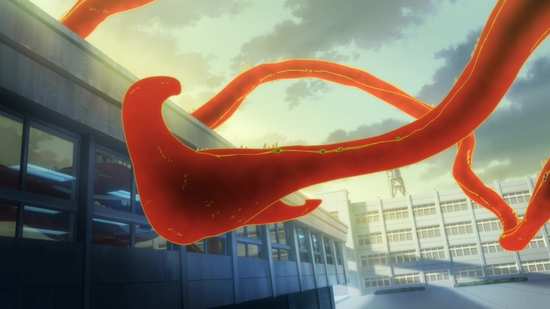
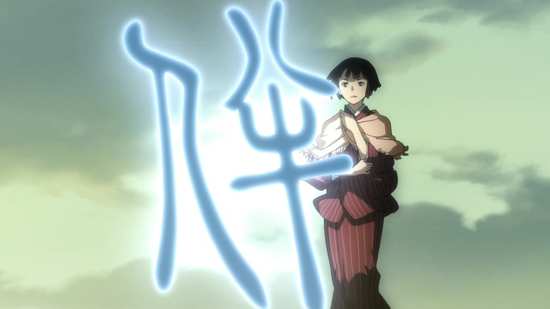
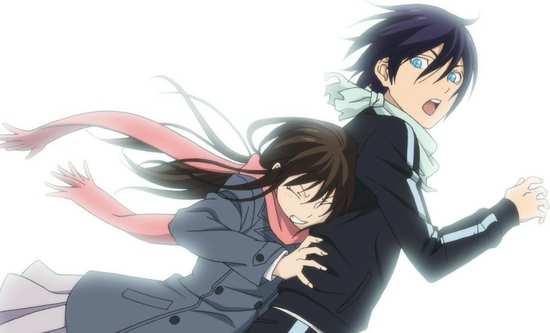
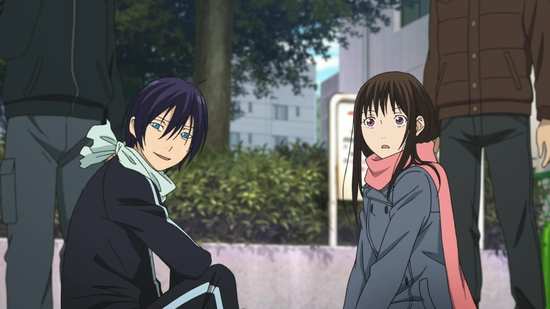
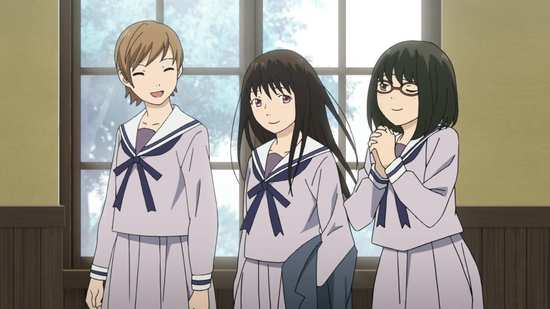
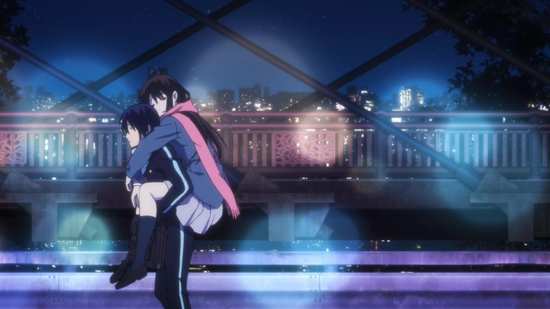

Your Opinions and Comments
Be the first to post a comment!